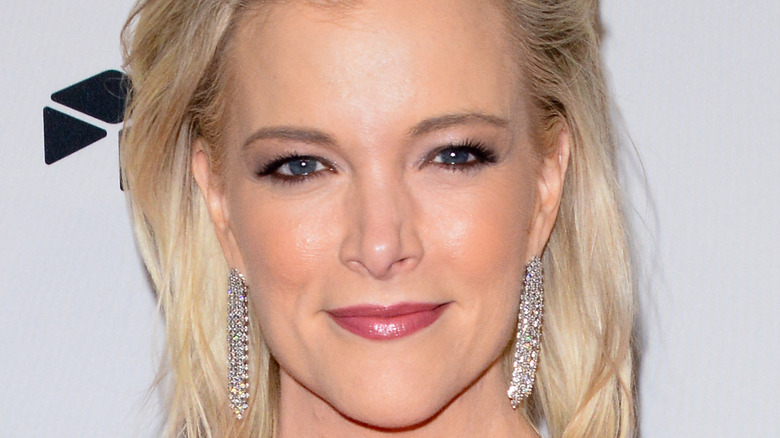Megyn Kelly Has A Stark Warning For Ron DeSantis Amid The 'Don't Say Gay' Fallout
In the wake of Florida passing its "Don't Say Gay" bill, which bars teachers from discussing issues of gender or sexual orientation with children in third grade and below, some Florida companies have taken a vocal stand against what they feel is a bigoted, backwards piece of legislation. Among the largest of these companies to go against the bill is Disney (via The New York Times).
In response to Disney's outspoken criticism of the bill, Florida's Governor Ron DeSantis made an unprecedented move to revoke special privileges that Disney has enjoyed in the state for over 55 years. The longstanding agreement had allowed Disney to essentially govern and manage its theme park empire as its own entity and also allowed tax privileges, all of which have now been revoked.
While some Republican lawmakers and pundits agree with the bold Move DeSantis made, others are voicing concerns that the move is very clearly retaliatory and could land DeSantis in hot water. Among those concerned is former television host and current podcaster Megyn Kelly (via New York Post).
Megyn Kelly defends Disney's first amendment rights
Former Fox News anchor Megyn Kelly has expressed concern that the actions Ron DeSantis has taken against Disney could come around to bite him (via New York Post). While she admits she doesn't necessarily think he was in the wrong, she does think he may wind up paying for it. On a recent episode of her podcast, Kelly said, "It doesn't mean it's the wrong strategic move — he's punching the bully in the nose, might have to go to the principal for it, might get suspended, doesn't necessarily mean it's the wrong thing to do."
However, she does worry that it sets a dangerous precedent of lawmakers punishing corporations for exercising their First Amendment rights to free speech. She explained, "I'm actually more concerned about what DeSantis is doing from a First Amendment perspective ... I actually think there's a very decent chance that a court is going to strike this down as viewpoint discrimination by the government against a corporation — which is not lawful."

